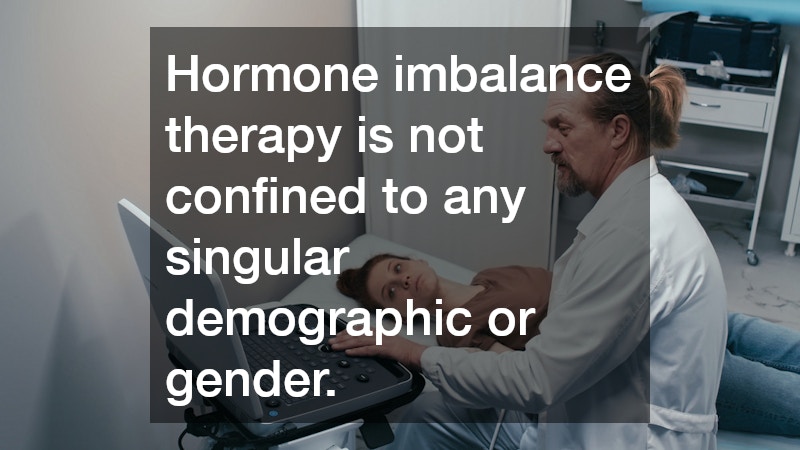In recent years, hormone imbalance therapy in Temecula, CA, has garnered increasing attention as a potential solution for individuals facing challenges related to hormonal imbalances. This article explores the concept of hormone imbalance therapy, its potential benefits, and answers some of the most frequently asked questions regarding this therapy.
What is Hormone Imbalance Therapy?
The term “hormone imbalance therapy” refers to a broad range of medical treatments designed to restore the natural equilibrium of hormone levels within the body. Hormones play a critical role in regulating various bodily functions, and any disruption in their levels can result in a cascade of undesired symptoms, including fatigue, mood swings, or unexplained weight gain.
Hormone imbalance therapy seeks to address these deficiencies or excesses, thereby alleviating symptoms and enhancing a person’s well-being and overall quality of life.
At the core of hormone imbalance therapy are several treatment methodologies, each aiming to provide a targeted approach to hormone regulation. For instance, bioidentical hormone replacement therapy (BHRT) is employed to replace hormones that are identical on a molecular level to the body’s natural hormones. Moreover, synthetic hormones are used in certain cases to correct imbalances. These therapies are customized based on the individual needs of patients to ensure maximum efficacy and minimum side effects.
Understanding the science behind hormone imbalances and treatments is crucial for anyone considering this therapy. Disruptions in hormone levels can stem from various sources, such as aging, stress, or underlying health conditions. Therefore, undergoing a thorough medical evaluation is a pivotal first step. Diagnostic tests, like blood panels, can provide insights into hormone levels and guide the customization of therapy. Such an approach ensures that treatment is aligned with the patient’s specific hormonal profile, improving the likelihood of achieving optimal health outcomes.
Who Can Benefit from Hormone Imbalance Therapy?
Hormone imbalance therapy is not confined to any singular demographic or gender; it has the potential to benefit a wide array of individuals experiencing hormonal flux. Women, for instance, often encounter significant hormonal changes during menopause, which can lead to hot flashes, mood variations, and bone density loss. Similarly, men with andropause might find themselves grappling with decreased energy levels and libido, all of which hormone imbalance therapy might help address, thereby enhancing well-being.
Furthermore, individuals diagnosed with thyroid disorders or adrenal fatigue can also find relief through hormone imbalance therapy. The thyroid gland, responsible for regulating metabolism and energy, can sometimes underproduce or overproduce hormones, leading to hypothyroidism or hyperthyroidism. Similarly, adrenal fatigue, often a result of prolonged stress, can cause cortisol imbalances. Tailored hormone therapies can assist in regulating these conditions, helping individuals reclaim control over their health and vitality.
Importantly, the individualization of therapy based on specific hormonal requirements is a cornerstone of successful treatment. Through personalized medicine, healthcare professionals can craft treatment plans that align with the unique hormonal landscape of each patient. By continuously monitoring and adjusting therapy as needed, patients may experience improved health outcomes and symptom relief, supporting their journey towards optimal health and vitality.
What are the Risks and Considerations of Hormone Imbalance Therapy?
While hormone imbalance therapy offers potential benefits, it is essential for individuals to be cognizant of the accompanying risks and considerations. One of the main challenges is ensuring the precise dosage of hormone replacements. An incorrect dose can result in further imbalances, potentially exacerbating symptoms or leading to new health issues. Therefore, ongoing monitoring and regular consultations with healthcare providers are vital components of any hormone therapy regimen.
Another consideration involves possible side effects associated with hormone therapy. Although many individuals experience relief, some may encounter adverse effects, such as bloating, headaches, or mood changes. Additionally, the long-term implications of hormone therapy remain a subject of continued research. Patients should engage in thorough discussions with their healthcare providers to understand the potential risks and benefits specific to their context.
Conclusion
Hormone imbalance therapy in Temecula, CA, could be a promising option for those struggling with hormone-related issues. By understanding what the therapy entails, identifying those who might benefit, and considering the associated risks, individuals can make informed decisions about their health. As with any medical treatment, seeking expert advice is essential to navigating the path toward thriving with hormone balance.


